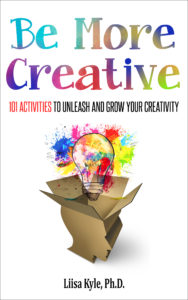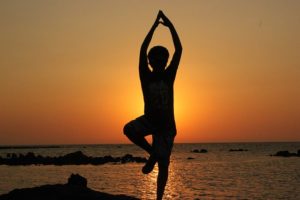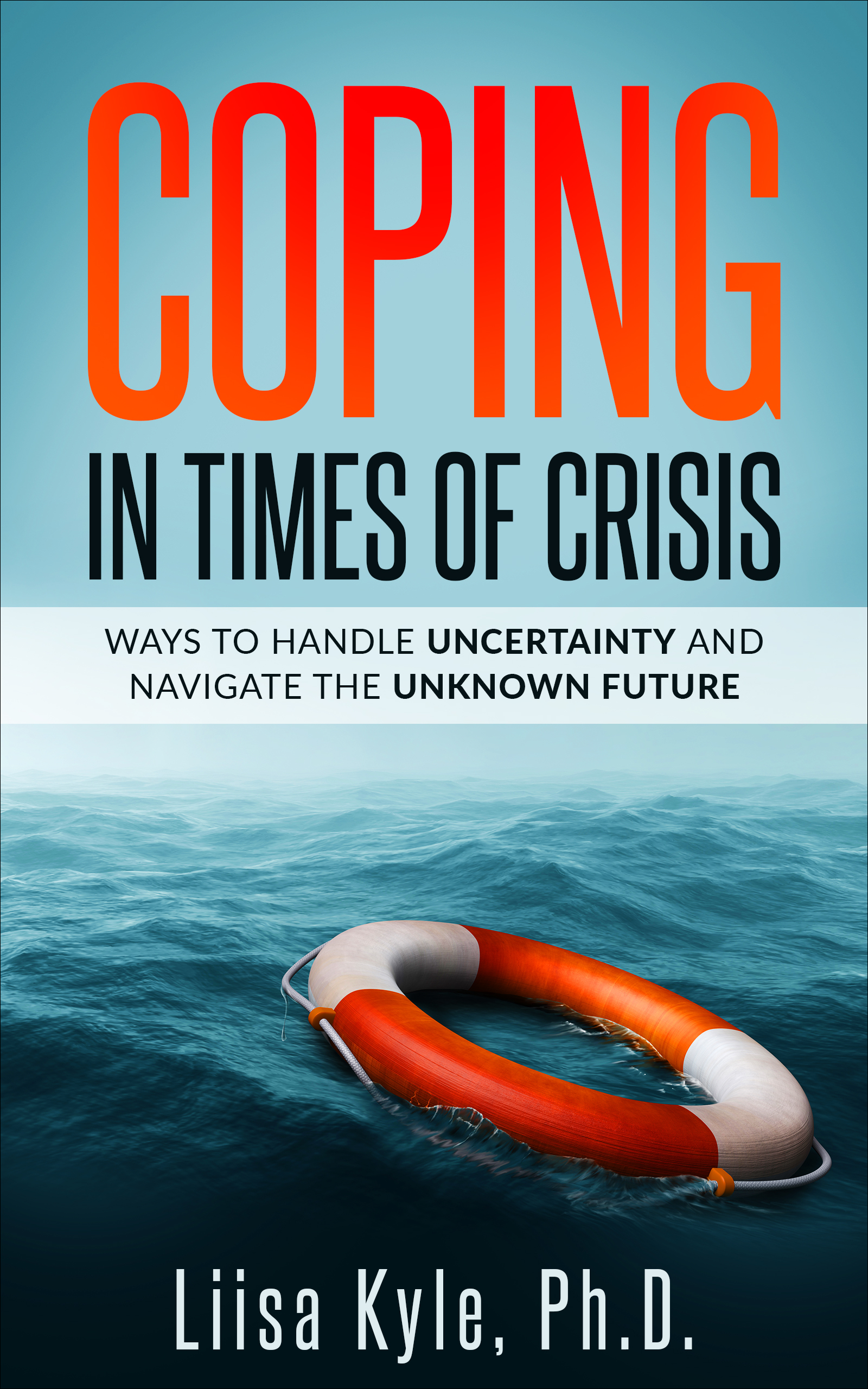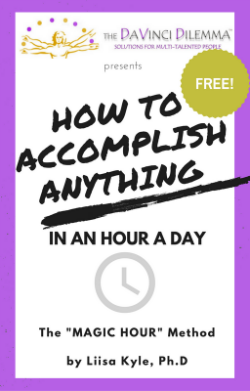For a while there, I was quite worried about my husband’s health. He was not eating healthfully, exercising, or sleeping well. He was stressed out, sedentary, and generally not delighted. I was concerned.
Then, out of the blue, he got back into photography. This was once a happy passion of his — but one, sadly, he had shelved for the past few years. Thankfully, as soon as he started taking photos again, his whole energy changed. He happily planned local excursions to shoot new material. He deep-dived into researching new technology and techniques for shooting, editing, and printing. He shifted his schedule to include some photography time every day. His smile reappeared, as did a spring in his step. His transformation reminded me just how important creativity is to our health and well-being.
You’ve probably seen in it your own life: when you are create, you are healthier. You have more physical and mental energy. Your mind works faster. Your mood is elevated. You sleep better. You take better care of yourself. Compare this to how you feel when you are not creating: your energy is lower. You are more sluggish in mind and body. You are probably crankier and more pessimistic. Your sleep is likely to be disrupted. You may self-medicate with booze or junk food or random chemicals.
Research supports our anecdotal experiences. Creativity can lower heart rate, blood pressure and levels of stress hormone. Scientific studies have proven the therapeutic effects of crafting in managing pain, alleviating stress, reducing depression, and enhancing cognitive functioning. This literature review summarizes the research that has chronicled many mental and physical benefits of expressing creativity through music, visual arts, movement, and writing.
These studies reinforce what many of us have experienced: Creativity elevates our mood and reduces stress. When we create, we take better care of ourselves. Let’s dive deeper.
Creativity elevates our mood and reduces stress.
First and foremost, creative expression is an instant mood lifter. It’s fun. It feels good. It makes us happy. When we get in ‘the zone’, our minds and bodies relax. Our neurons emit happy endorphins producing euphoria and blocking pain. (How do dancers dance on broken toes? Endorphins.)
Let’s compare that to what happens when stress hormones such as cortisol are emitted by our cells. In the short term, stress hormones are very helpful and essential to our nature. They allow us the physical capacity for ‘fight or flight’ on the spot. They instantly amp up our fear. They divert energy towards our limbs and circulation while suppressing immune, digestive, reproductive and growth systems. This is wonderfully helpful if we need to, say, fight off a shark attack or run away from a bear.
These biological responses are also triggered by modern day stresses like the bosses’ random demands, commuting, paying bills, and so forth. The body detects our stress and tries to help. The problem is that, unlike shark attacks which are relatively brief, modern stressors persist. When stress persists, our biological responses persist, too. Our fear remains amped up. Our immune, digestive, reproductive and growth systems remain suppressed. The longer this state persists, the greater the damage to our bodies and our health.
One way to curtail the ravages of stress hormones is by meditation. Taking a few 3-4 minute meditation breaks in the day can be enough to disrupt and offset stress.
Much as I enjoy and appreciate meditation, it can be challenging to commit to a regular meditation practice. And frankly, it’s not exactly exciting. A more fun way to offset stress is to create.
The more time we spend creating, the more endorphins we release, the happier we are and the less stress hormones we emit.
But here’s a caveat: if you create for a living, you may find your creative process has been infiltrated by all kinds of stress-producing elements. The budget! The stakeholders! The critics! All these pressures can curtail the health benefits of your creative endeavors.
To the extent you can focus on the creative aspects of your job, rather than the practical, the healthier you will be.
To do this, you need to first, monitor your stress level i.e,. pause and take note, several times a day. Second, you need to take action accordingly. If you are feeling happy and relaxed, carry on. If, however, you are stressed or brooding or unhappy, pause and problem solve: Do you need a break? Do you need help? Do you need a different approach? What is REALLY the problem: the situation or your fears or feelings about it? What is solvable?
What can you put in place to monitor and curtail your stress level? Some people find it helpful to wear a FitBit or other bio-monitoring device. Some prefer to pause a few times a day to check their mood and stress level, and then take action accordingly. Some make a point of inserting stress-reducing activities into their day.
***
Activity: How can you monitor your stress level, several times a day? Take a moment to think about what will work for you, given your unique circumstances and preferences. Make a list. Pick (at least) one. Now make a point of implementing it this week.
***
Alternatively, what creative expression do you enjoy, outside of work? This is where DaVincis — multi-talented people — have a real advantage in life. Most of us have many creative pursuits, some of which are caught up in our identify and livelihood, and some of which are not. The latter can heal the stress induced by the former.
For example, as much as I love writing, it is woven up in practical factors such as my career and my identity as an author. I do adore making silver jewelry but I sometimes fret about the commercial appeal and distribution of my creations. In contrast, I feel no such tangles with other creative pursuits I enjoy such as making tapestries or crafting birthday cards or mucking about with acrylic paints. These are happy diversions done simply for the fun of it.
***
Activity: What creative pursuits do you enjoy just for fun? (Ideally these would be activities that have little or no connection to your personal identity or to your livelihood). Make a list. Of these, which are easy and fun for you to engage in most days? If you don’t already, make a point of indulging in some purely fun creative activities this week. Even a half hour a day, several times a week can give you a huge mood boost.
***
The important thing here is to start. To establish a habit of inserting stress-free creative expression into your regular week. Another way to do this is to sign up for a class. You could learn a new skill or hone existing talents. The advantage of a class is that it is a regular appointment with you and your talents. As well, it’s a change to connect with like-minded others. Or maybe you prefer to teach a class. Or to set up a self-directed study via the internet. Whatever works for you to establish a routine of regular creativity.
Once you have regular opportunities for creativity in your life, your mood will life and your stress will decrease. And you will gain other health benefits pretty easily:
When we create, we tend to take better care of ourselves.
We eat better. We give our body some attention. We lay off the booze or potato chips or chemical forms of self-medication.
Take a moment to think about what easy things you could do to improve your health. Make a list. (If you want some ideas, here are some). Now, pick one thing to implement this week. Once that becomes a regular habit, go back to your list and choose another idea. Implement it.
Why bother?
The healthier you are, the more you will fuel your creativity. The more creative you are, the healthier you will be.
***
 Check out my workbook: BE MORE CREATIVE: 101 Activities to Unleash & Grow Your Creativity
Check out my workbook: BE MORE CREATIVE: 101 Activities to Unleash & Grow Your Creativity
Available here in hardcover, paperback & eBook formats: http://bit.ly/BeMoreCreativeBook
***
If you’d like to share or publish this article, you may, if you include the author’s name, a link to this original post and the following text blurb:
Are you struggling with too many talents, skills, ideas? You may have The DaVinci Dilemma™! Find tools, fun quizzes, coaching, inspiration and solutions for multi-talented people athttp://www.davincidilemma.com/.




